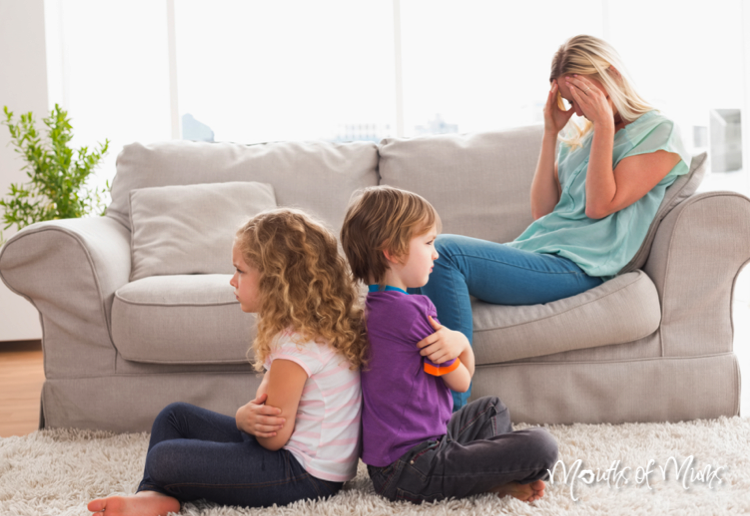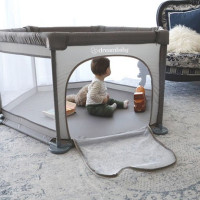In room full of parents, when asked the question, “Who has a strong-willed child?” 75 percent of the audience will always put their hand up.
So why is that? Why are children coming into the world more demanding? What can we do about it?
Do we increase the discipline? Bring back physical punishment? Make our rules tougher?
Or is there a completely different approach that goes against the grain of everything we’ve been taught we need to do?
To answer these questions we need to take a short trip through the history of mankind’s evolution of change.
When you look at how we got to this point in time, you will see loads of historical stories tell of many humans living, learning, making mistakes, looking for new options, seeking improvement and desiring change. Humans instinctively grow and evolve in this very way.
Throughout history, every time you have seen people in authority try to suppress this instinct and instead try and control this innate desire to live, learn, experience, improve and change, they are met with a few people who buck the system, and eventually, an entire mass of people to which point, there can no longer be that level of control anymore. The people rule and systems have to change.
We saw this in women’s liberation, apartheid, Hitler and the Nazi Party, even in our own country’s history.
Masses of people come together refusing to bow down to the control that inhibits our natural ability to think for ourselves, decide for ourselves and move in the direction of our internal guidance system that wants to expand and evolve, and almost always, these demands of change have been in alignment with wanting more co-operation, more respect, more freedom and more love.
Now let’s bring this information a little closer to home – into the family environment.
When you think about your own childhood and how you were raised, there was also a fair bit of dictatorship going on. “Children should be seen and not heard.” “Do as I say, or else….” There was a way in which we had to conform or we were put down, hurt, ridiculed or punished in various ways, so we learnt to conform.
We learnt to forget about our internal guidance system and do what made others happy.
There were a few who bucked the system, refusing to conform and follow the rules and they struggled through life, but most of us chose the easier way of please those around us to feel good, or good enough.
But the reason the masses didn’t come into play and say, “No, we won’t conform” in this day and age, was because within the boundaries, came a lot of flexibility. We were off playing from morning til dusk. We were off doing our thing, playing, learning, making our decisions, making mistakes and learning from them and we had the freedom to explore our environment and use our own internal guidance system to learn our way. We had to rely on ourselves to decide what felt good or safe and what didn’t.
So the desire to change the system wasn’t very strong because it wasn’t hugely imposing on our desired freedom to just be.
But the control and discipline still left it’s mark on us. It taught us to believe in a right path (do the right thing, achieve, do well at school, get a good job, earn good money, be a good citizen etc) and made us fearful of getting it wrong.
We grew up needing to get it right before we could feel good. We grew up to learn that the conditions of our outside environment needed to be right before we could feel good, good enough, worthy, successful or valuable.
This promoted feelings such as fear (of getting life wrong), anxiety (I must control life so it goes right and prevent it from going wrong), depression (I’ve failed because I got it wrong), and many other emotions that we feel when life isn’t going right.
Now let’s bring that into the parenting arena and take a look at what’s happening with our kids.
If we, as parents, have learnt to need the conditions of our life to be right before we can feel good, essentially we begin parenting from that place where we need our children to behave before we can feel good (in the eyes of ourselves or others).
Often unconsciously, we are making our children responsible for how we feel and they can feel it!
In an attempt to do the right thing by our children, parents have learnt to fall into the trap of micromanaging our child’s experiences so we can get it our kids’ lives right and we can earn the badge of feeling like a good parent.
We do this by trying to pre-empt the difficulties that they may face in order to fix them. We jump into fix those endless quarrels. We tell them what to do and how to do it so they don’t have to experience the difficulty of learning. We make decisions for them, limit their options and plan their days.
The parenting community today, and even society in general whenever it comes to children, are putting so many measures in place to ‘protect’ our kids, we are leading them away from their internal guidance systems and towards the same rules and constraints that made us feel fearful, anxious or depressed in the first place – the message: “You need to conform so that others feel good, so that then you can feel good when they do”.
The effect on our kids?
Many of them are not having a bar of it! This is where our strong-willed kids come in – our trail blazers creating change.
Today’s kids are feeling the discord between the human tendance to explore, learn, make mistakes and guide themselves, and the controlled environment that they are living in and they are unsconsciously saying, “No! We will not be responsible for how you feel. We want to learn and grow and decide and experience and we will not conform to your rules.”
Just like so many times in history, we are seeing our strong willed kids in the masses coming into this world to buck the system so the system has to change.
So the questions isn’t, “Are our children coming into this world more demanding?” The question is, “Are our children coming into this world too restricted?”
However, in an attempt to buck the system and prove to their leaders that they will not be controlled, they are going to the other extremes and moving further from the natural balance of what they want.
So no-one’s happy. Parents are at a loss as to how to deal with their strong-willed child so they up the ante and discipline more, punish more and stand their ground. Kids dig their heels in and remain persistent and rebellious and resistant, and the cycle keeps continuing.
So what is the answer? It’s going to require a big shift in our parenting approach, but one our kids are pushing us towards whether we like it or not.
The answer is to back off, allow our children to be innately who they are. Let them experience the highs and lows of life and learn for themselves. Guide them to feel into what feels good and what doesn’t and making decisions from that place, and help them to experientially learn those things that we think we have to push onto them.
For example: Perhaps if we looked at helping our kids to experience the discord of not co-operating, being mean, and going against the morals of society, they will learn to want to change their ways, rather than be told they have to.
Perhaps if we helped them to clarify what they want and look for ways to get it that feel good, they will develop their own innate work ethic, drive, determination and desire to work.
Perhaps if we helped them to recognise that it doesn’t feel good to be rude, inconsiderate or nasty and by changing their approach, they will change the quality of their relationships so that they do feel good.
You see, we don’t need to teach children morals and values, they come into this world happy, loving, co-operative and considerate.
Perhaps what’s leading our kids astray and to the strong-willed nature they are showing us, is that through often unconscious beliefs of our own, we are teaching them that others know better, they need to conform, they need to be controlled and they need to be shown the way to be in the world. Eventually, we beat them down, they learn to conform, they lose their innate ability they were born with to trust themselves and their own internal guidance system. They lose their will to want to change the system. They conform, but they still feel the discord as they move into sadness, or anxiety or fear, just like us parents.
Perhaps, when we are looking at our strong-willed kids, we need to look at what they’re trying to teach us, rather than how they’re trying to challenge us.
Perhaps the problem is not with our children at all, but more with the work we need to do as adults to let go, enjoy life, trust our kids more and to trust our own internal guidance systems. Then learn how to parent from there.
Do you agree? SHARE WITH US in the comments below.
Main image courtesy of Shutterstock.com
We may get commissions for purchases made using links in this post. Learn more.




















-

-
-
-
meedee said
- 11 May 2021
Reply
-

-
-
-
sharna_booth_weinrowski said
- 29 May 2016
Reply
-

-
-
-
ella12 said
- 09 May 2016
Reply
-

-
-
-
mom19782016 said
- 07 May 2016
Reply
-

-
-
-
mom134803 said
- 07 May 2016

Reply
-

-
-
-
mom101628 said
- 06 May 2016
Reply
-

-
-
-
mom113991 said
- 06 May 2016
Reply
-

-
-
-
unicorn16 said
- 01 May 2016
Reply
-

-
-
-
BellaB said
- 30 Apr 2016
Reply
-

-
-
-
rachelvk said
- 26 Apr 2016
Reply
-

-
-
-
june11 said
- 25 Apr 2016
Reply
-

-
-
-
mom93821 said
- 24 Apr 2016
Reply
-

-
-
-
mom81879 said
- 24 Apr 2016
Reply
Post a comment1:07 pm
8:26 am
4:29 pm
9:37 am
7:36 am
8:40 pm
8:26 pm
9:26 pm
9:18 pm
9:53 pm
12:08 am
5:15 pm
5:02 pm